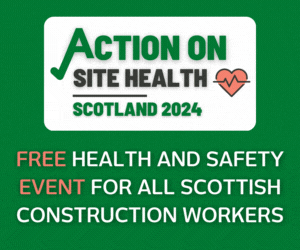UK Chancellor’s Winter Economy Plan ‘does not go far enough’, says finance secretary

Chancellor Rishi Sunak
Scotland’s finance secretary Kate Forbes has said that the chancellor’s Winter Economy Plan announced yesterday does not go far enough to protect jobs.
While Ms Forbes welcomed some of the measures announced by the UK Government, she said that the details of the economic plan would not provide the support to jobs which the Scottish Government had hoped for.
Yesterday, chancellor Rishi Sunak announced a new jobs support scheme which would replace furlough, which will see the UK Government support the wages of the British people by covering at least a third of their normal hours.
The UK Government will top up a third of the worker’s salary which would have otherwise been lost as a result of working reduced hours.
This ‘direct support’ is capped at £697.92 a month, meaning a third of hours will go unpaid. The scheme will start in November and run for six months with all small and medium-sized businesses eligible for the scheme.
The chancellor stated that larger companies must prove their profits have been negatively affected by the COVID-19 pandemic in order to access the scheme.
The Winter Economy Plan will also see VAT remain at 5% for hospitality and tourism until 31 March 2021 - rather than returning back to 20% in January. At the same time, the deadline for taking out a coronavirus business interruption loan will be extended until November 30. The Government has also announced a guarantee on CBILS loans for up to ten years.
Ms Forbes said that Scottish Government analysis has suggested 61,000 jobs would be saved if the furlough scheme was extended, however, she added that the details of this new scheme have indicated it will “not provide the support that was hoped for.”
The finance secretary said: “We also need more clarity on what this will mean for those businesses and people who are not working at present as over 217,000 people are still on furlough in Scotland.
“It is disappointing that these changes don’t take into account our current reality of local lockdowns, with no apparent flexibility to support local or national restrictions, or those sectors, like the events sector, that have not yet been able to reopen.”
On the VAT cut, she added: “News of the VAT deferral and extension to the VAT cut for hospitality and tourism are positive steps, however, these are two of the sectors hit hardest by this pandemic, and today’s announcement doesn’t give enough support for those sectors.
“It’s also important to highlight that this is not a budget – devolved governments need clarity on funding so we can tailor our support to meet Scotland’s needs.”
Ms Forbes concluded: “As I have stressed before, we have responded to COVID-19 without the fiscal levers we require. Not only is the UK Government denying us the appropriate financial powers needed to fully respond to the pandemic, it has also removed any clarity about how much funding we will receive by deciding to scrap this autumn’s UK Budget.”
Mark Robinson, chief executive at public sector procurement authority Scape Group, said: “The construction industry remains one of the UK’s hardest-hit sectors, however, like retail, manufacturing and hospitality, it remains a critical component at the top end of what is fast-becoming an uneven economic recovery in which some sectors risk being left behind.
“The latest figures suggest that post-lockdown growth in construction has begun to slow and, whilst today’s announcement will be welcomed in terms of protecting jobs, it’s imperative that project owners and contractors do all they can to get the next wave of developments off the ground as quickly as possible.
“As outlined by the Prime Minister earlier this summer, the public sector will be pivotal in that respect, as projects look to move through procurement and delivery at pace.”

















